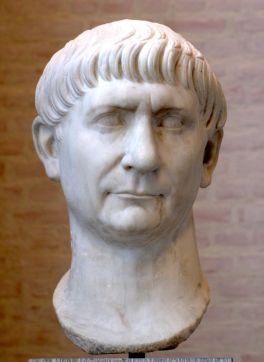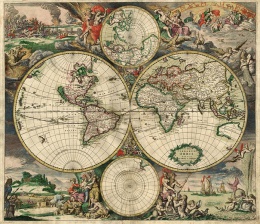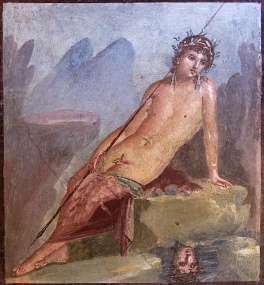Trajan

| Part of the boylove history series |
 |
| Portal:History |
Caesar Nerva Trajanus (18 September 53 – 9/11 August 117), known as Trajan, was Roman emperor from 98 to 117. Officially declared by the Senate optimus princeps ("best ruler"), Trajan is remembered as a successful soldier-emperor who presided over the second-greatest military expansion in Roman history, after Augustus, leading the empire to attain its maximum territorial extent by the time of his death. He is also known for his philanthropic rule, overseeing extensive public building programs and implementing social welfare policies, which earned him his enduring reputation as the second of the Five Good Emperors who presided over an era of peace within the Empire and prosperity in the Mediterranean world.
Trajan was born in Italica, close to modern Seville in present-day Spain, an Italic settlement in the Roman province of Hispania Baetica. Although misleadingly designated by some later writers as a provincial, his Ulpia gens came from Umbria and he was born a Roman citizen.[1] Trajan rose to prominence during the reign of emperor Domitian. Serving as a legatus legionis in Hispania Tarraconensis, in 89 Trajan supported Domitian against a revolt on the Rhine led by Antonius Saturninus. In September 96, Domitian was succeeded by the old and childless Nerva, who proved to be unpopular with the army. After a brief and tumultuous year in power, culminating in a revolt by members of the Praetorian Guard, he decided to adopt the more popular Trajan as his heir and successor. Nerva died in 98 and was succeeded by his adopted son without incident.
As a civilian administrator, Trajan is best known for his extensive public building program, which reshaped the city of Rome and left numerous enduring landmarks su as Trajan's Forum, Trajan's Market and Trajan's Column.
Early in his reign, he annexed the Nabataean Kingdom, creating the province of Arabia Petraea. His conquest of Dacia enriched the empire greatly, as the new province possessed many valuable gold mines. Trajan's war against the Parthian Empire ended with the sack of the capital Ctesiphon and the annexation of Armenia and Mesopotamia. In late 117, while sailing back to Rome, Trajan fell ill and died of a stroke in the city of Selinus. He was deified by the Senate and his ashes were laid to rest under the Trajan's Column. He was succeeded by his cousin Hadrian, whom Trajan supposedly adopted on his deathbed.
Personal life

According to the Roman History (c. 230 AD), a work by the statesman and historian Cassius Dio, Trajan had a known erotic inclination toward male youths (Greek: μειράκια, meirakia; "lads or striplings", middle to late adolescents),[2] his relationships with them being considered discreet and inoffensive. It also mentions that Trajan fell in love with Pylades, a pantomime dancer, and that he showed his favor to Arbandes, son of King Abgar VII of Osroene, on account of the youthful good looks of the prince.[3]
In the Historia Augusta (4th Century AD), a dubious but still relevant collection of biographies, Trajan's attraction to boys is referenced, as well as his keeping of delicati ("darlings", favorite young slaves).[4]
Furthermore, an allusion to his long-lasting reputation as a pederast is made in The Caesars (c. 362 AD), a satirical work by emperor Julian, which has the satyr Silenus audibly whispering that, in the vicinity of Trajan's ghost, Jupiter should keep an eye on Ganymede.[5]
References
- ↑ Arnold Blumberg, Great Leaders, Great Tyrants? Contemporary Views of World Rulers who Made History, 1995, Greenwood Publishing Group, p. 315.
- ↑ https://en.wiktionary.org/wiki/%CE%BC%CE%B5%CE%B9%CF%81%CE%AC%CE%BA%CE%B9%CE%BF%CE%BD
- ↑ Cassius Dio, "Book 68", in Roman History, Vol. 8, trans. Earnest Cary and Herbert B. Foster, Loeb Classical Library (Cambridge, Massachusetts,harvard University Press, 1925).
- ↑ "Hadrian", in Historia Augusta, Vol. 1, trans. David Magie, Loeb Classical Library (Cambridge, Massachusetts: Harvard University Press, 1921).
- ↑ Julian, "The Caesars", Julian, Vol. 3, trans. Wilmer C. Wright, Loeb Classical Library (Cambridge, Massachusetts: Harvard University Press, 1921).
See also
